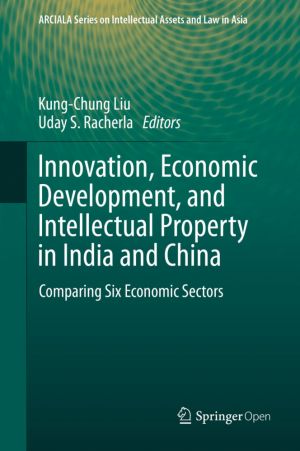
This book analyses intellectual property and innovation governance in the development of six key industries in India and China. These industries are reflective of the innovation and economic development of the two economies, or of vital importance to them: the IT Industry, the film industry, the pharmaceutical industry, plant varieties and food sec...
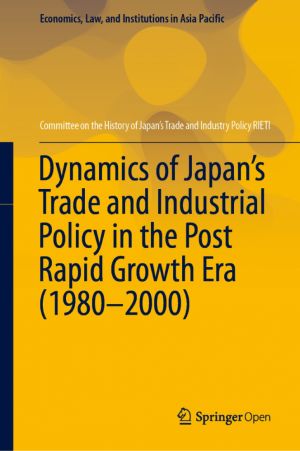
This open book provides an in-depth examination of Japan's policy responses to the economic challenges of the 1980s and '90s. While MITI's earlier role in promoting rapid growth has been addressed in other studies, this volume, based on official records and exhaustive interviews, is the first to examine the aftermath of rapid growth ...

This open book provides a concise introduction to economic approaches and mathematical methods for the study of water allocation and distribution problems. Written in an accessible and straightforward style, it discusses and analyzes central issues in integrated water resource management, water tariffs, water markets, and transboundary water manage...

Climate Crisis Economics draws on economics, political economy, scientific literature, and data to gauge the extent to which our various communities - political, economic, business - are making the essential leap to a new narrative and policy approach that will accelerate us towards the necessary transition to a decarbonized economy and sustainable...

A PDF version of this book is available for free in open access via the OAPEN Library platform, www.oapen.org. This book examines the significance of networks among the firms operative in the contemporary Russian software industry in the St. Petersburg region....

This book discusses the risks and opportunities that arise in Emerging Asia given the context of a new environment in global liquidity and capital flows. It elaborates on the need to ensure financial and overall economic stability in the region through improved financial regulation and other policy measures to minimize the emergent risks. "Man...
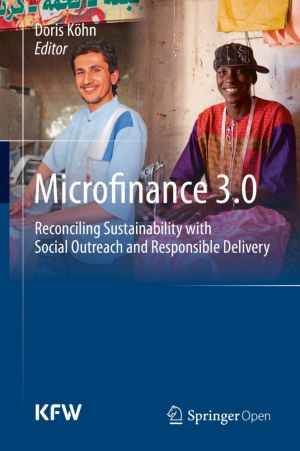
This book focuses on the achievements, current trends and further potential of microfinance to scale-up and serve many more clients with financial services that enable them to improve their living conditions. The book asks what it takes to achieve sustainable impact: to know your clients and to understand their needs, to treat them in a fair and tr...

This book delves into the widely held belief that the 21st century will be the "Asian Century" by examining the Asia's rapid economic development in the post-war era and the challenges it faces in forging ahead of world leaders in the West.The impact of the current turbulent global political climate on Asia is critically analyzed, em...
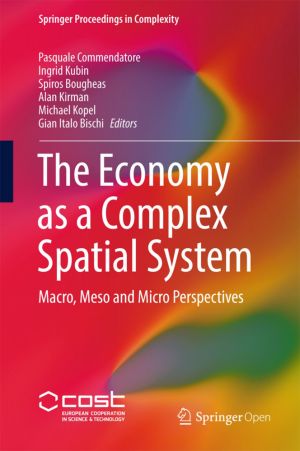
This collected volume represents the final outcome of the COST Action IS1104 "The EU in the new complex geography of economic systems: models, tools and policy evaluation".Visualizing the EU as a complex and multi-layered network, the book is organized in three parts, each of them dealing with a different level of analysis: At the macro-l...
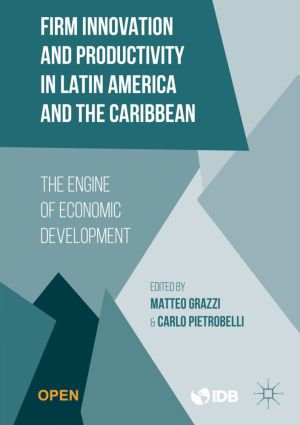
This volume uses the study of firm dynamics to investigate the factors preventing faster productivity growth in Latin America and the Caribbean, pushing past the limits of traditional macroeconomic analyses. Each chapter is dedicated to an examination of a different factor affecting firm productivity - innovation, ICT usage, on-the-job-training, fi...
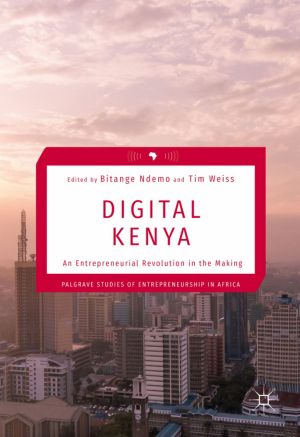
Presenting rigorous and original research, this volume offers key insights into the historical, cultural, social, economic and political forces at play in the creation of world-class ICT innovations in Kenya. Following the arrival of fiber-optic cables in 2009, Digital Kenya examines why the initial entrepreneurial spirit and digital revolution has...
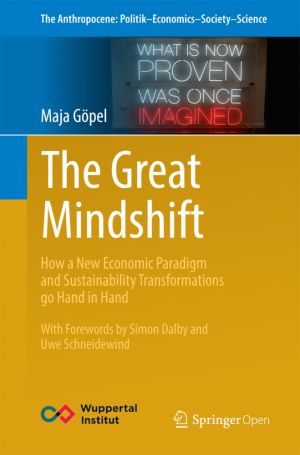
Sustainable development is the 21st Century's wicked problem. After 40 years into this agenda have reversed only few unsustainable trends we hear the call for aparadigm shift, transformation, radical change or system innovations in order to finally change course. But what does this actually mean? And how do we put it into practice?
This book ...
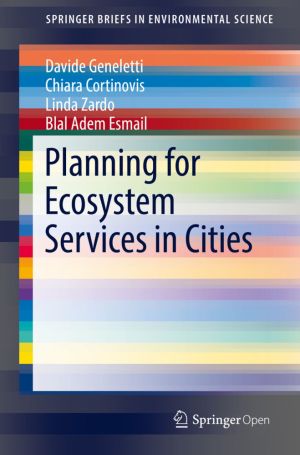
This book presents current knowledge about ecosystem services (ES) in urban planning, and discusses various urban ES topics such as spatial distribution of urban ecosystems, population distribution, and physical infrastructure properties. The book addresses all these issues by: i) investigating to what extent ecosystem services are currently includ...
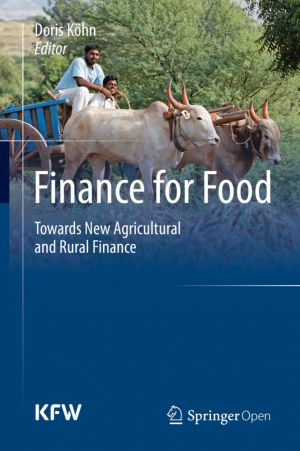
This book reflects the current state of discussion about agricultural and rural finance in developing and transition countries. It provides insight into specific themes, such as commodity value chains, farm banking, risk management in agricultural banking, structured finance, crop insurance, mobile banking, and how to increase effectiveness in rura...

The authors of this book advise the economies of the European Union to become more entrepreneurial in promoting innovation and economic growth. The authors propose a reform strategy with respect to several aspects to achieve this goal. Starting with the rule of law and the protection of property rights; the tax system; the authors deal with regulat...
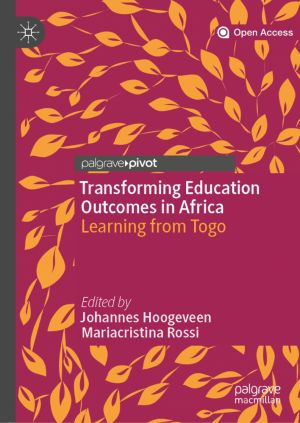
Good education changes lives. It is therefore unsurprising that improved schooling plays a central part in most development strategies. At the same time, the expansion of school attainment alone is not sufficient to guarantee improved welfare. This book focuses on one country in West Africa, Togo, to explore what a country that has successfully inc...
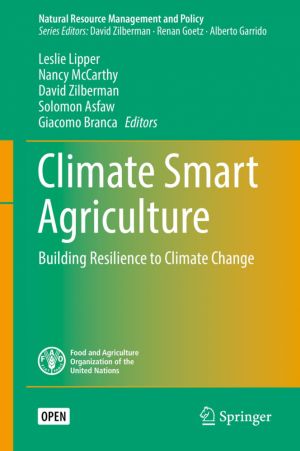
The book uses an economic lens to identify the main features of climate-smart agriculture (CSA), its likely impact, and the challenges associated with its implementation. Drawing upon theory and concepts from agricultural development, institutional, and resource economics, this book expands and formalizes the conceptual foundations of CSA. Focusing...

What are the challenges and action points for agricultural sustainability in Sub-Saharan Africa? This collection of papers offers technical analyses, policy recommendations and an overview of success stories to date. Each carefully selected paper provides valuable insights for improved policy making and defines relevant strategic priorities on Afri...

This edited volume examines how economic processes have worked upon social lives and social realities in Latin America during the past decades. Through tracing the effects of the neoliberal epoch into the era of the so-called pink tide, the book seeks to understand to what extent the turn to the left at the start of the millennium managed to challe...

How can we design more sustainable industrial and urban systems that reduce environmental impacts while supporting a high quality of life for everyone? What progress has been made towards reducing resource use and waste, and what are the prospects for more resilient material-efficient economies? What are the environmental and social impacts of glob...
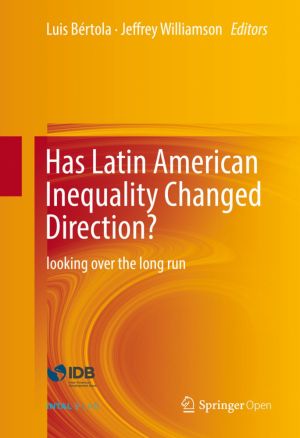
This book brings together a range of ideas and theories to arrive at a deeper understanding of inequality in Latin America and its complex realities. To so, it addresses questions such as: What are the origins of inequality in Latin America? How can we create societies that are more equal in terms of income distribution, gender equality and opportu...

Why should people - and economies - save? This book on the savings problem in Latin America and the Caribbean suggests that, while saving to survive the bad times is important, saving to thrive in the good times is what really counts. People must save to invest in health and education, live productive and fulfilling lives, and make the most of thei...
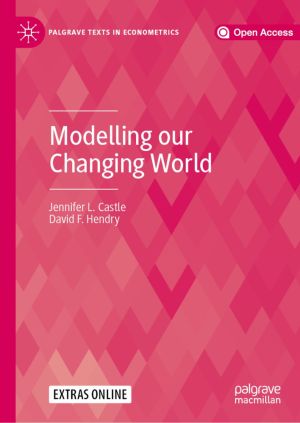
This book focuses on the concepts, tools and techniques needed to successfully model ever-changing time-series data. It emphasizes the need for general models to account for the complexities of the modern world and how these can be applied to a range of issues facing Earth, from modelling volcanic eruptions, carbon dioxide emissions and global temp...

This book discusses how Norwegian shipping companies played a crucial role in global shipping markets in the 20th century, at times transporting more than ten per cent of world seaborne trade. Chapters explore how Norway managed to remain competitive, despite being a high labour-cost country in an industry with global competition. Among the feature...

This book surveys the frontier of scientific river research and provides examples to guide management towards a sustainable future of riverine ecosystems. Principal structures and functions of the biogeosphere of rivers are explained; key threats are identified, and effective solutions for restoration and mitigation are provided. Rivers are among ...

This book discusses booming housing markets in cities around the globe, and the resulting challenges for policymakers and central banks. Cities are booming everywhere, leading to a growing demand for urban housing. In many cities this demand is out-pacing supply, which causes house prices to soar and increases the pressure on rental markets. These ...
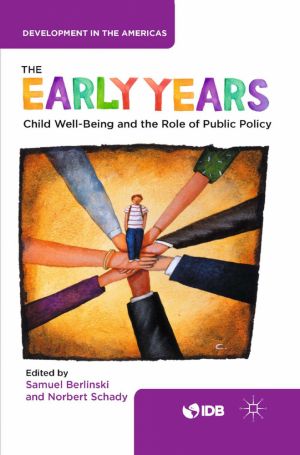
The Early Years analyzes the development of Latin American and Caribbean children and makes a compelling case for government intervention in what is instinctively a family affair. Spending on effective programs for young children is an investment that, if done well, will have very high returns, while failure to implement such programs will lower th...

This open book discusses the eroding economics of nuclear power for electricity generation as well as technical, legal, and political acceptance issues. The use of nuclear power for electricity generation is still a heavily disputed issue. Aside from technical risks, safety issues, and the unsolved problem of nuclear waste disposal, the economic pe...

This book provides a unique overview of the impacts of railways on biodiversity, integrating the existing knowledge on the ecological effects of railways on wildlife, identifying major knowledge gaps and research directions and presenting the emerging field of railway ecology. The book is divided into two major parts: Part one offers a general revi...

This free book tells the story of how Sweden is becoming a virtually cashless society. Its goal is to improve readers' understanding of what is driving this transition, and of the factors that are fostering and hampering it. In doing so, the book covers the role of central banks, political factors, needs for innovation, and the stakeholders in...
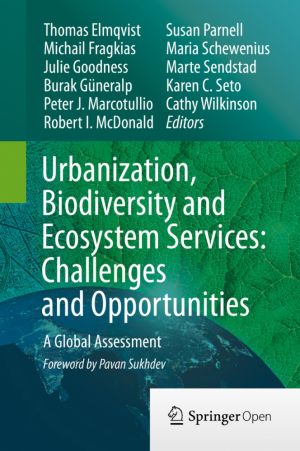
To understand how the world's ecosystems are changing we need to understand cities, and to create better cities we need to understand the ecosystems they depend on. The failure of most markets, government policies and even urban studies to take these relations into account has put cities, and increasingly the whole world, in a difficult positi...
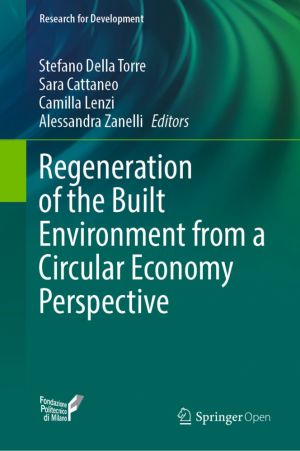
This free book explores the strategic importance and advantages of adopting multidisciplinary and multiscalar approaches of inquiry and intervention with respect to the built environment, based on principles of sustainability and circular economy strategies. A series of key challenges are considered in depth from a multidisciplinary perspective, sp...
